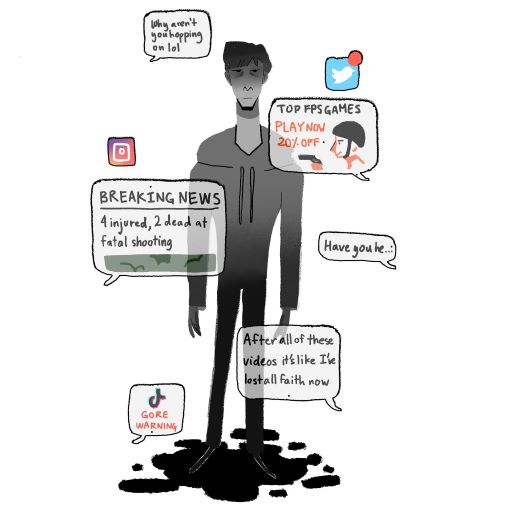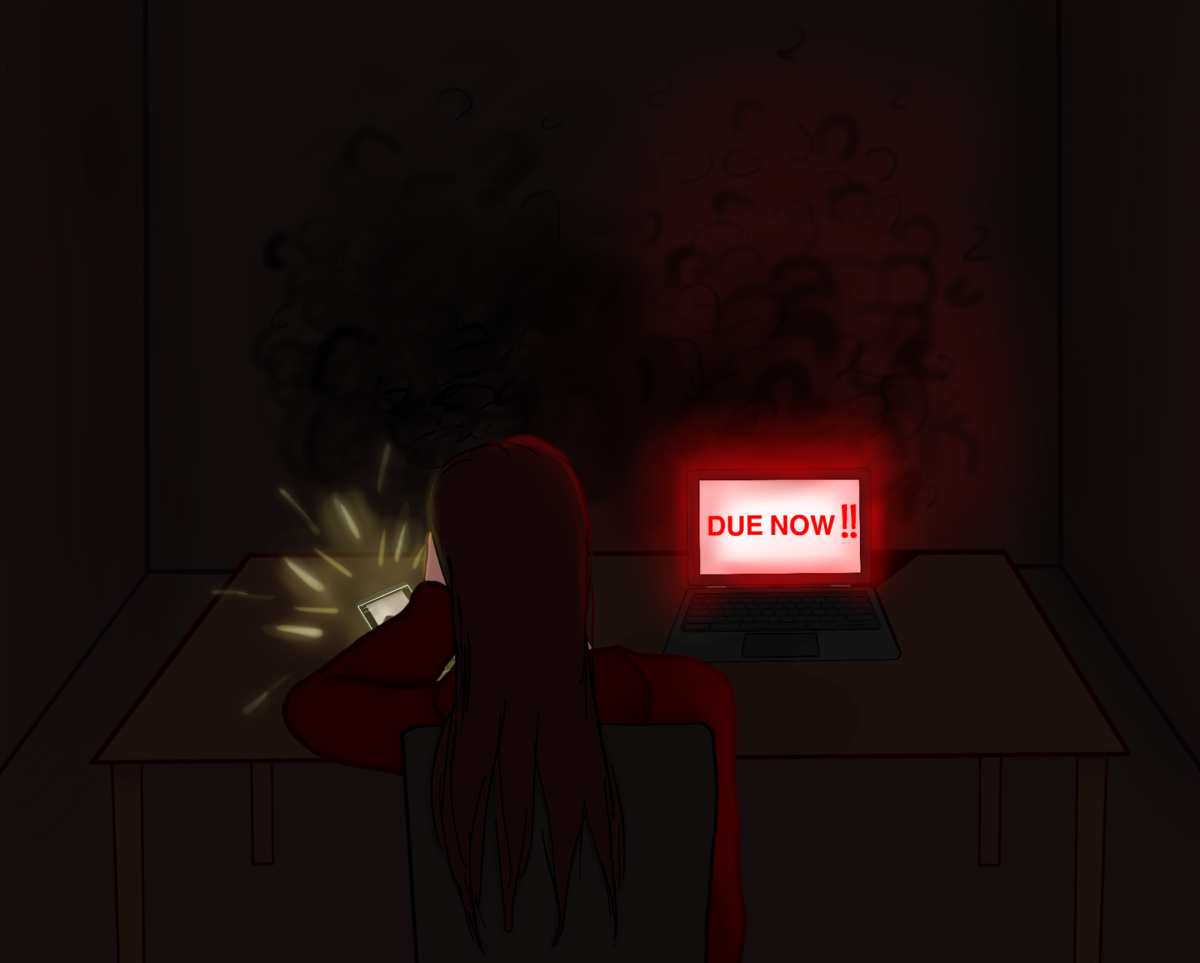Scrolling through my Instagram feed, it seems like there’s a mass shooting somewhere in our country every other week. One month ago, 11 people died in the Monterey Park shooting; just a few days later, another shooting in Half Moon Bay claimed an additional seven lives. Like all dutiful screenagers, I shared the tragic stories with my friends, but over the span of around 10 minutes, I moved on, finding a cat video more entertaining.
Looking back, I’m ashamed of my response. Our emotional desensitization to violence is a major problem in our society. When we are bombarded with negativity, we turn off our emotional receptors as a natural response to trauma.
According to the National Library of Medicine, the average 18-year-old now shockingly consumes over 6,000 videos of violence each year.
This high number is partly due to the media’s exploitation of humanity’s innate negativity bias, drawing on people’s natural attraction to danger in order to make a profit. However, external factors have also contributed to the rise of violence content.
Social media has allowed people to share videos globally with the click of a button. The issue is that algorithms on these apps are designed to addict viewers and thus recommend violent topics to attract our attention.
Regarding movies and TV shows, an American Academy of Pediatrics study recently found the amount of violence in films has doubled since 1950, and gun violence in PG-13 films since 1985 has tripled. This means younger audiences are exposed increasingly earlier to extreme brutality in their daily lives.
As we can guess, viewing traumatic content repeatedly is critical to health. In a Schoology survey sent out by The Campanile on February 23 that received 60 student responses, 63% felt stressed after watching violent videos.
Such stress can even have physical effects on students. An article from the Journal of Youth and Adolescence said exposure to violence leads to a rise in cortisol levels and blood pressure in the short term. With repeated stress, these levels can increase permanently, leading to a plethora of other problems like depression, hypertension and learning difficulties.
However, the main effect of emotional desensitization is a lack of empathy. A study from the Journal of Adolescence found “violence in screen-based media may affect empathy by desensitizing viewers to the true consequences of violent actions.”
A lack of empathy can harm our moral compass as a whole. Data from the National Library of Medicine said that our relationships with our friends and family suffer when our empathy levels decrease because it becomes more difficult to listen or trust one another, leading to a lack of mutual support.
However, there is still hope. The best way to maintain our empathy is to live in the real world and to spend less time on our devices. Being exposed to less violence has been found to be the most effective way to re-sensitize ourselves.
At the same time, we should not shelter ourselves from violence, as it is a part of the human experience.
The news has the right to cover violent events because those events are generally important to highlight. For example, a lot of the systematic change that occurred because of the Black Lives Matter movement occurred because of the traumatic videos that broadcast horrific police brutality to the world.
Rather, it is important to give yourself time to process these events. Talking about your reactions with others can also help you to fully empathize with the real-life people in the situation.
The only way we can regain our empathy is through taking action. The littlest things, like taking a break from your phone or giving yourself time to process events instead of scrolling to the next attention grabber, can make all the difference.










